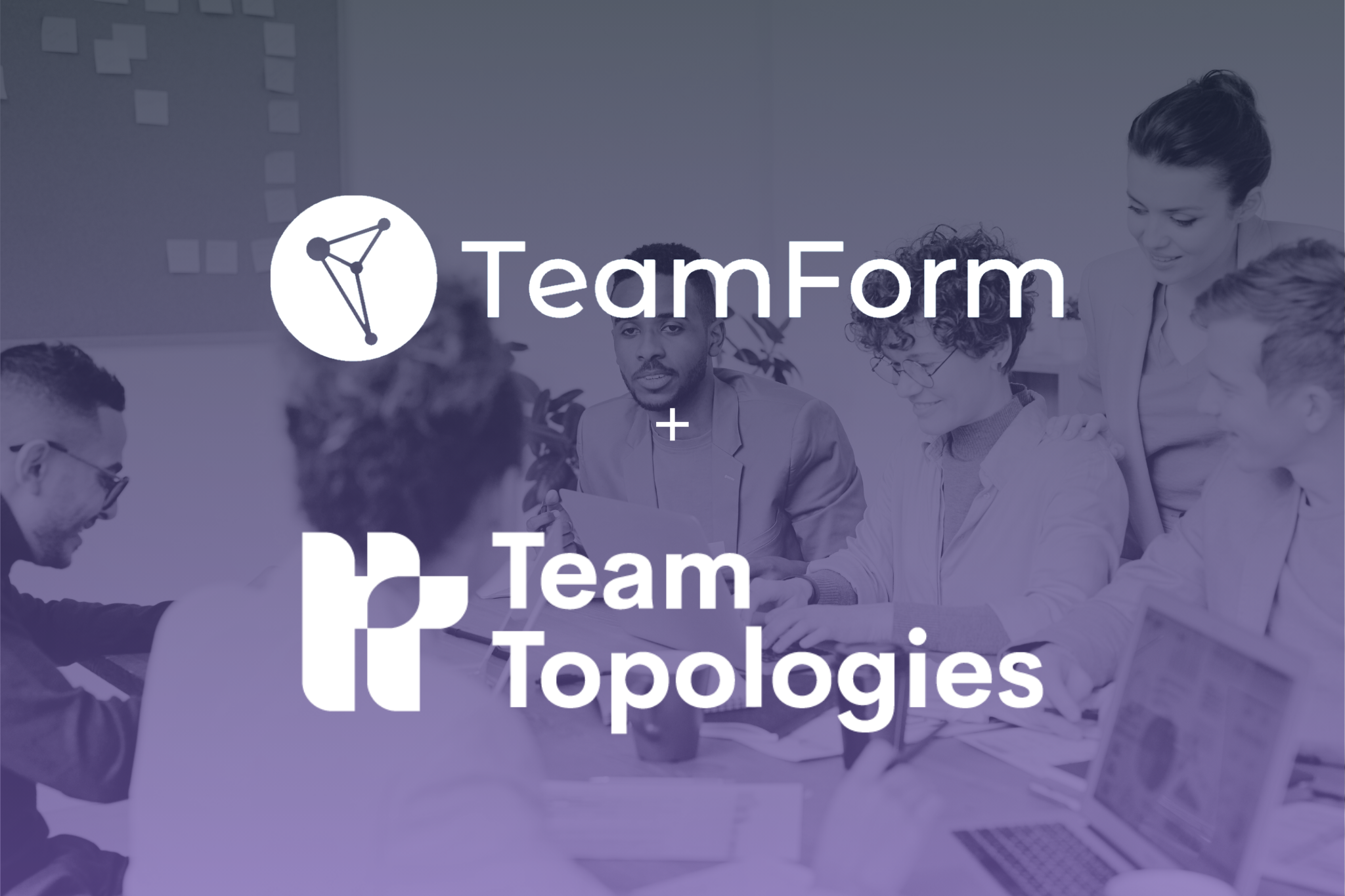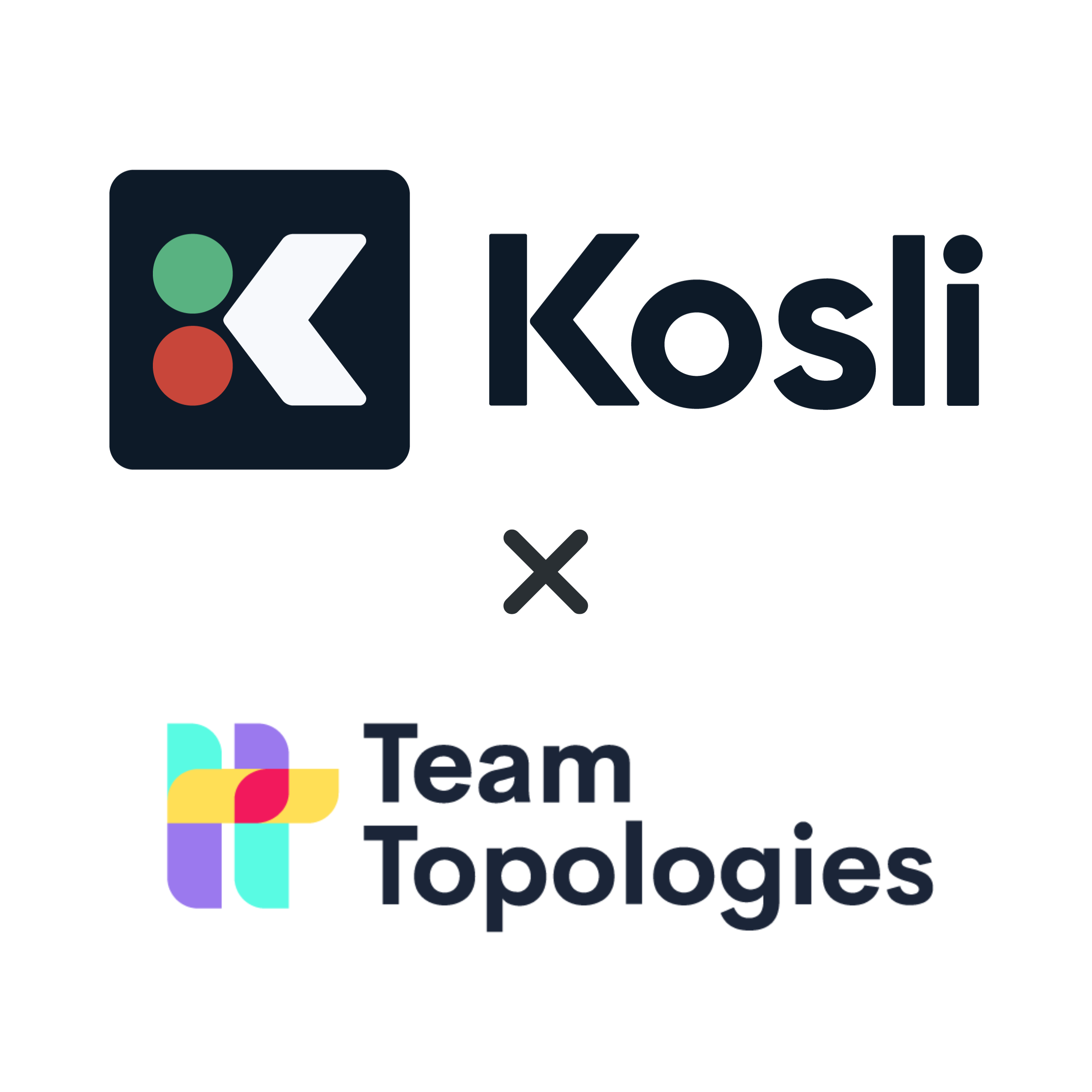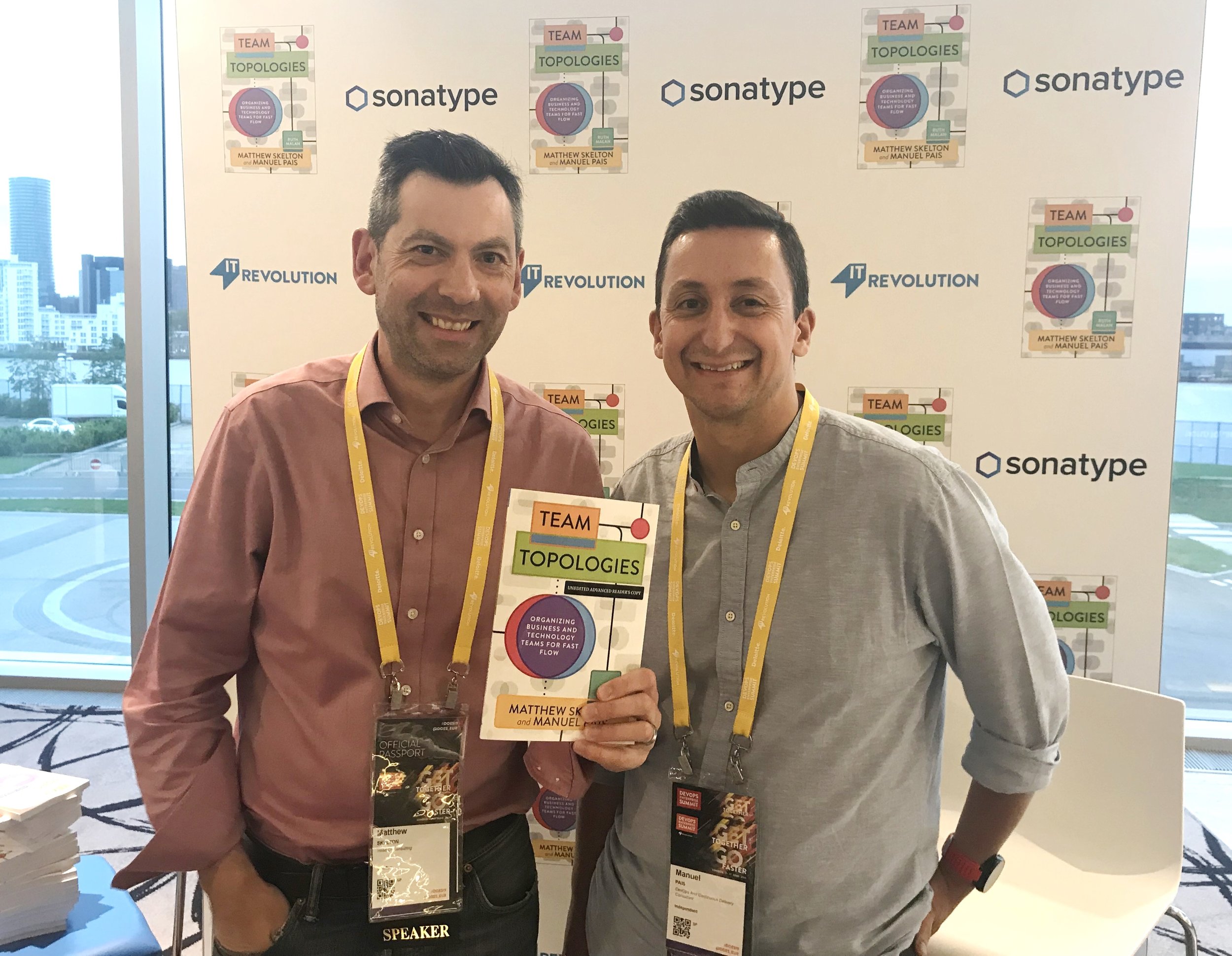The Latest Announcements and News
Search in News
We're excited to announce a strategic partnership between Team Topologies and TeamForm, the leading platform for team-first operating models. Building on a collaborative relationship established in 2021, this formal partnership bridges the gap between Team Topologies principles and the day-to-day execution required to scale them across global enterprises.
We're excited to announce a new strategic partnership with Kosli, the world's leading SDLC Governance platform. Together, we'll be helping regulated enterprises achieve faster, more efficient software delivery while maintaining the strict compliance and security requirements their industries demand.
The second edition of the book Team Topologies provides vital success stories, analysis, commentary, and clarifications to help leaders plan and execute transformations in every industry sector and geography.
Team Topologies - the leading approach to organization dynamics for fast flow - is entering a new phase of operations to better support its core mission, opening the door to wider participation from the ecosystem of partners, sponsors, supporters, and the community at large. As part of this new phase, the core operations of Team Topologies will move to a not-for-profit approach. This transition marks an exciting new phase in the Team Topologies journey as we deepen our commitment to making work more humane and effective for everyone.
We are happy to announce Luke McManus as the APAC Region Lead for Team Topologies, In this new role, Luke will be acting as a brand ambassador for the company. He will play the role of catalyst in the growing community of advocates, practitioners and transformation leaders. Luke will also act as the face of Team Topologies for solution, advanced and training partners, coordinating events and joint delivery of engagements.
We are happy to announce the appointment of Val Yonchev as the Head of Customer Success, a strategic move to strengthen our commitment to enhancing digital operations worldwide. With a focus on design for fast flow, Team Topologies aim to meet the increasing demand for streamlined team-of-teams approaches. Val’s extensive experience, particularly from his roles at Red Hat Open Innovation Labs and Digital.AI, positions him as a key driver in scaling Team Topologies’ efforts and nurturing strong partnerships with practitioners, solution partners, and training partners. Matthew Skelton, co-author and co-CEO at Team Topologies, expressed excitement about Yonchev’s appointment, emphasizing his suitability for leading customer and partner success initiatives.
Team Topologies Ltd announces Armakuni as the first Team Topologies Solution Partner (TTSP) worldwide.
Summary: we are leaving Twitter because Elon Musk is encouraging hate and division. See you on LinkedIn and Mastodon!
We are offering reduced price “Scholarship” training on Team Topologies during June and early July 2020 to people affected by the COVI-19 pandemic: 96€ EUR per session instead of the regular price 300€ EUR per session.
We’re pleased to launch a new online interactive training series covering essential Team Topologies concepts and patterns with training led by the authors of Team Topologies, Matthew Skelton and Manuel Pais.
The training sessions have been designed for the new remote-first, post-pandemic world. The sessions are 4 hours long (with breaks), making them suitable for people in multiple different timezones to join. The sessions are:
Each session covers a different set of Team Topologies ideas and concepts with links between sessions to connect the concepts. Each session is fully independent and valuable by itself, but when taken together as a set of four, the sessions provide a complete coverage of the essential Team Topologies ideas.
The authors of the book Team Topologies - Matthew Skelton and Manuel Pais - are pleased to announce new self-paced online training for project managers in partnership with the Project Management Institute (PMI). The course - Team Topologies for Project Managers - helps project managers to understand how to set up technology and business teams to achieve faster flow and faster feedback based on the principles and practices in the acclaimed book Team Topologies. The course takes around 4 hours to complete and comes with a Certification of Completion & 8 PDUs for PMI members.
Matthew and Manuel will be presenting and signing their book at several events until end of 2019: DevOps Summit in Amsterdam, DOES US in Las Vegas, SQS-Tag in Frankfurt, Jenkins World in Lisbon, and Seacon in London.
Join to receive a signed free copy of the book!
We’re thrilled to announce that the book Team Topologies: Organizing Business and Technology Teams for Fast Flow by Matthew Skelton and Manuel pais has been published by IT Revolution Press and is now available in paperback, Kindle, and audiobook from stores around the world.
I recently joined Mike Kavis of Deloitte on his OnCloud podcast to talk about team communication for effective software delivery. We covered the original DevOps Topologies patterns and how these have been used in industry, and then talked about what’s in the book Team Topologies: well-defined team types, what we mean by a modern platform, team interaction modes, clear responsibility boundaries, DevEx, and using difficulties in team interactions as ‘signals’ to the organization that something is missing or misplaced. We also talked about moving beyond the Spotify model - success in software delivery is not just about team structures but about how teams interact and what kind of relationships they create, sustain, and evolve.
The book Team Topologies has been 5 or 6 years in the making. How did we (Manuel and I) come to write to book and why?
…
In our travels around the world helping organizations with software delivery practices, we noticed that organizations needed guidance on how to evolve team interactions. We also saw that in many organizations the boundaries between teams are very unclear: people were asking “why are we spending so much time working with that other team?” or “why is this service so difficult to use?” - very often there was little clarity about the purpose and duration of team-to-team interactions.
Our forthcoming book - Team Topologies: organizing business and technology teams for fast flow - is progressing well. We’re thrilled to be working with the amazing folks at IT Revolution Press, the home of books like The Phoenix Project, The DevOps Handbook, and Accelerate. The expected publication date is later in 2019.


















The DevOps Institute has published the Enterprise DevOps Skills Report 2019 covering the in-demand skills for software development in enterprises around the world.
The original DevOps Team Topologies - which ultimately led to our Team Topologies book - are mentioned in the report in the context of different kinds of teams to help make DevOps work.